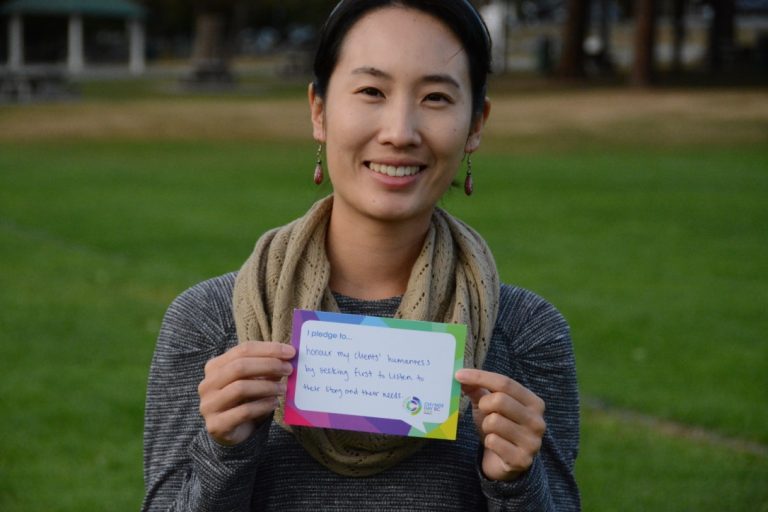Contributed by Helen Tam of Langley Memorial Cottage. Helen Tam completed her undergraduate studies at the University of California, Berkeley, and completed her MSc in Occupational Therapy at the University of Alberta. She works as an occupational therapist at Langley Memorial Cottage, a community tertiary psychiatric rehabilitation facility. In her spare time, Helen enjoys playing ultimate Frisbee, tennis and baking.
As an occupational therapist, patient-centred care is at the core of our profession; this ranges from how we guide therapeutic relationships, to planning assessments and interventions, to how we measure success in our clients. My pledge for Change Day 2017 is to honour my clients’ humanness by seeking first to listen to their story and their needs. The clients I work with are living with a severe and persistent mental illness, and some have a history of substance abuse, challenging relationships, early childhood trauma, homelessness, multiple hospitalizations, failed housing placements, etc. These factors affect their daily occupations, including maintaining a routine, obtaining and sustaining employment, maintaining healthy relationships, and participating in meaningful activities. My role as an occupational therapist is to support them to engage meaningfully in their daily occupations, the things they need and want to do, while finding strategies to manage their symptoms and responses to potential triggers.
Although my pledge is specific to my line of work in mental health, I believe that the message expands to health care providers working with all populations. Whether the illness or disability is visible or not, the person is not defined by it. We must demonstrate genuine and gentle curiosity and empathy to listen to their story and their needs to be better-informed health care professionals.
In my favourite clip from the Disney movie Moana, the message is powerful: Moana sees a different side of the goddess. She tells the goddess that it is not her fault that she is this way, and “this does not define [her]”. This meaningful scene speaks to my pledge because I want to help people see who they are inside, and to also help them define their future narrative. By seeking first to listen to their story, their needs and their family’s wishes, we are taking steps to gaining that therapeutic alliance to guide patient-centred care.


